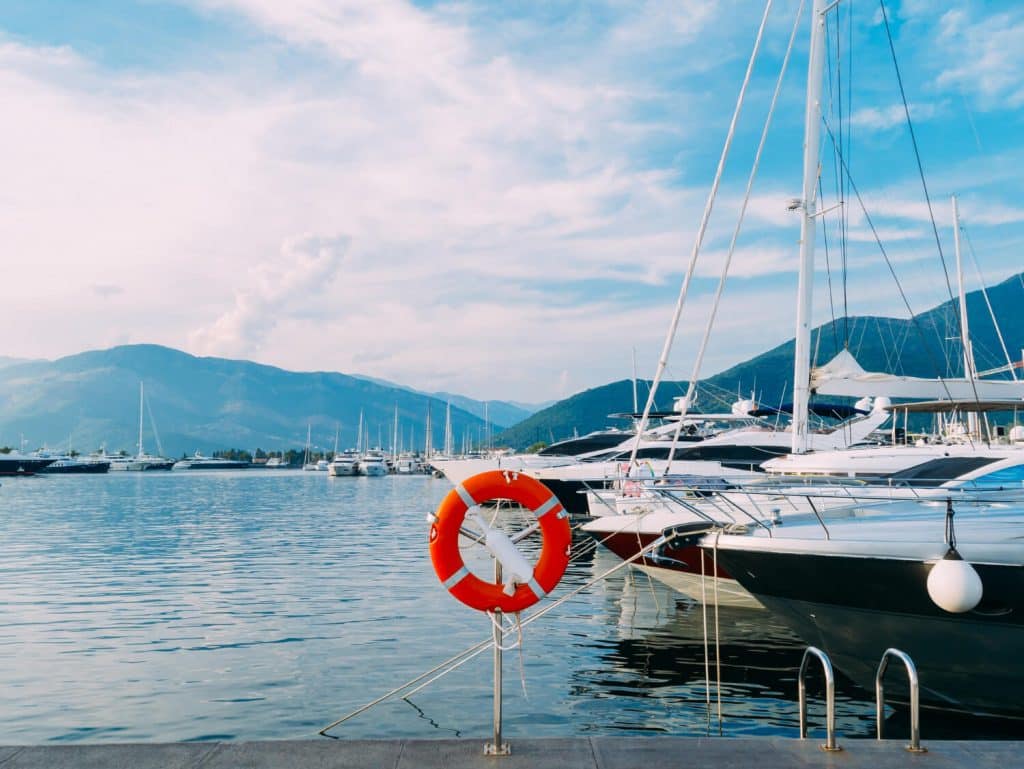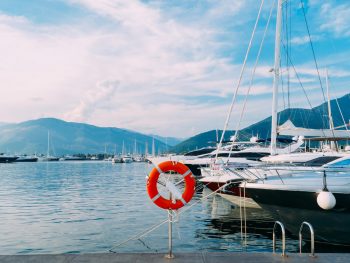
Many of us who own a boat probably lack familiarity or experience when it comes to fishing, swimming, or just cruising, as we are not regulars. We all do love the summer afternoon on the water, but while having this great time with family and friends, boating safety sometimes takes a back seat.
Hundreds of Americans are killed each year, thousands injured, and millions of dollars worth of property damage due to boating accidents. Many of these accidents are preventable with just a few simple safety know-hows.
Get your boat checked.
You should check if your boat is seaworthy by scheduling a U.S. Coast Guard Vessel Safety Check. This evaluation is free and brings in the peace of mind that your boat meets federal safety standards, and in an emergency, you will have the necessary equipment to save lives and reach out for help.
Boating safety courses and tips
In a boat safety course, you will learn about basic marine operation, navigation, and safety, as well as federal and state boating regulations. Check out this website for online boat safety courses https://www.boatus.org/free/.
Thirty-six states now require operators to take boating safety courses as part of their boat licensing or certification process.
Other life-saving tips
- Know the rules. Whenever you meet another boat, it's like approaching an unmarked intersection in your car. You can avoid a collision if both of you know the simple right of way. The good news is there are a standard set of rules to govern the action of each boat. The bad news is that many boat operators do not know the rules! You must learn the nautical "rules of the road" by taking a boater safety class.
- Protect against propeller strikes. Before starting the boat engine, make sure all passengers are accounted for and wear your emergency cut-off switch at all times. It is always good to have one person as a backup propellor watcher
- Dress for the water temperature. Remember, cold water can kill, account for the water temperature, not the air temperature when you dress for the boating trip. Always wear life jackets while boating.
- You should know at least basic swimming. Even a few basic swimming lessons could someday mean the difference between living and drowning.
- If your boat capsizes, stay with it. If your vessel does capsize, don't panic and try to swim for shore, it doesn't work most of the time. A capsized boat may recover, and most vessels will remain afloat, even when flooded or over-turned. This will also help rescuers to spot you easily.
- Wear a right-sized life jacket. Did you know in 2018, 77% of boating accident deaths were due to drowning. 84% of those victims were not wearing a life jacket. Wear the jacket, don't stow it. Tucked-away life jackets are mostly useless in an accident. Ensure you have a U.S. coast guard approved life jacket.
- Don't boat under the influence (BUI). 19% of all recreational boating fatalities involved us of alcohol.
- Leave a boat plan. Ensure someone on land knows you have taken the boat out and inform them when you plan to return. If things go wrong, they can be on the lookout.
- Appoint an assistant skipper. Have a backup on your boat who knows to operate the vessel and inform him/her where the safety and first aid equipment
- Check the weather. This is a must-do; check out the local forecasts before heading out
- Have communication options. Have a backup mobile phone in a water-resistant bag
- Use a kill switch lanyard. On powerboats and personal watercraft, there is a simple rope between you and the ignition key, which shuts the engine off if you fall off the boat or lose balance while driving, reducing the potential for harm to you or others in the water.
Gear you must carry
Things can go wrong while you are on the water, but you can ensure you are equipped to deal with them effectively. It is suggested you have the following items on your boat:
- A Compass and Charts of the local area,
- Radio equipment,
- Tool kit for repairs,
- Anchor and extra line,
- Paddles,
- Bailer or bilge pump,
- Fire extinguishers,
- First-aid kit,
- Food and water,
- Additional clothing, such as warm clothes and foul weather gear, and
- Personal items (Medicines, sunscreen, sunglasses)
Purchase boat insurance
You buy insurance to protect your investments, and boat insurance is high up in priority after home, auto. Talk to us and know the boat insurance options you have before you get in the water. We can help review the kinds of coverage you may already have helped identify some potential discounts for safe boaters.


